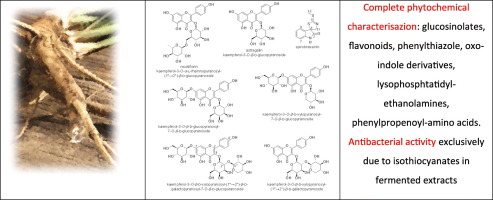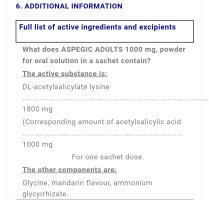Candeias
Member
- Joined
- Apr 29, 2018
- Messages
- 220
An Aspirin A Day Keeps the Biofilm at Bay
"Aspirin did not simply inhibit biofilm formation since it had little effect on adhesion but inhibited the metabolic activity of yeasts already embedded in established biofilm. The effect could be reversed by adding prostaglandin E2. Aspirin also drastically reduced the viability of the biofilm to 1%, whereas other COX inhibitors were much less effective, with indomethacin having no effect at all. The cell surfaces of the yeast appeared wrinkled after exposure to aspirin, but not the other drugs, indicating that aspirin exerts damage in several different ways."
Acetylsalicylic acid (aspirin) reduces damage to reconstituted human tissues infected with Candida species by inhibiting extracellular fungal lipases
"We hypothesized that ASA's protective effects were in part due to the inhibition of extracellular secreted lipase. ASA's lipase inhibition was previously demonstrated by the finding that oral administration of 3 g of ASA for 2 days to healthy subjects significantly decreases plasma free fatty acids and plasma post-heparin lipoprotein lipase activity [26]. Aspirin also inhibited the heightened lipase activity of lipoprotein lipase and hepatic lipase observed in smoking patients as measured by plasma free fatty acids and free glycerol levels [27]. We found that a 1 mM concentration of ASA consistently inhibited the growth of C. albicans and C. parapsilosis in a specific minimal medium supplemented with olive oil. Inhibition was similar to that of the lipase inhibitor quinine. In the examined lipid rich environment, organisms must rely upon secreted extracellular lipases to digest the sole energy source available. Blocking this process with lipase inhibition stalled fungal growth."
Effects of Aspirin and Other Nonsteroidal Anti-Inflammatory Drugs on Biofilms and Planktonic Cells of Candida albicans
"Aspirin was active against growing and fully mature (48-h) biofilms; its effect was dose related, and it produced significant inhibition (20 to 80%) at pharmacological concentrations. Simultaneous addition of prostaglandin E2 abolished the inhibitory effect of 25 or 50 μM aspirin. At 1 mM, aspirin reduced the viability of biofilm organisms to 1.9% of that of controls. Surviving cells had a wrinkled appearance, as judged by scanning electron microscopy, and consisted of both yeasts and hyphae."
Cotreatment with Aspirin and Azole Drugs Increases Sensitivity of Candida albicans in vitro
"In our experiment under planktonic conditions, the MIC50 values of FCA, ITR, or VRC applied alone were 64–0.5 μg/mL, 32–0.0625 μg/mL, and 16–0.125 μg/mL, respectively, whereas cotreatment with ASA decreased the values to 32–0.25 μg/mL, 8–0.0313 μg/mL and 8–0.0313 μg/mL, respectively. Additionally, the rate of enhancement of the inhibitory activities of FCA, ITR, and FCA by ASA under planktonic conditions was 43.59%."
Potential Antifungal Targets against a Candida Biofilm Based on an Enzyme in the Arachidonic Acid Cascade—A Review
"Notably, prostaglandin E2 (PGE2) can promote the formation of a Candida biofilm. Recently, the inhibition of PGE2 has received much attention. Studies have shown that cyclooxygenase (COX) inhibitors, such as aspirin, ibuprofen, and indomethacin, combined with fluconazole can significantly reduce Candida adhesion and biofilm development and increase fluconazole susceptibility; the MIC of fluconazole can be decrease from 64 to 2 μg/ml when used in combination with ibuprofen."
"Aspirin did not simply inhibit biofilm formation since it had little effect on adhesion but inhibited the metabolic activity of yeasts already embedded in established biofilm. The effect could be reversed by adding prostaglandin E2. Aspirin also drastically reduced the viability of the biofilm to 1%, whereas other COX inhibitors were much less effective, with indomethacin having no effect at all. The cell surfaces of the yeast appeared wrinkled after exposure to aspirin, but not the other drugs, indicating that aspirin exerts damage in several different ways."
Acetylsalicylic acid (aspirin) reduces damage to reconstituted human tissues infected with Candida species by inhibiting extracellular fungal lipases
"We hypothesized that ASA's protective effects were in part due to the inhibition of extracellular secreted lipase. ASA's lipase inhibition was previously demonstrated by the finding that oral administration of 3 g of ASA for 2 days to healthy subjects significantly decreases plasma free fatty acids and plasma post-heparin lipoprotein lipase activity [26]. Aspirin also inhibited the heightened lipase activity of lipoprotein lipase and hepatic lipase observed in smoking patients as measured by plasma free fatty acids and free glycerol levels [27]. We found that a 1 mM concentration of ASA consistently inhibited the growth of C. albicans and C. parapsilosis in a specific minimal medium supplemented with olive oil. Inhibition was similar to that of the lipase inhibitor quinine. In the examined lipid rich environment, organisms must rely upon secreted extracellular lipases to digest the sole energy source available. Blocking this process with lipase inhibition stalled fungal growth."
Effects of Aspirin and Other Nonsteroidal Anti-Inflammatory Drugs on Biofilms and Planktonic Cells of Candida albicans
"Aspirin was active against growing and fully mature (48-h) biofilms; its effect was dose related, and it produced significant inhibition (20 to 80%) at pharmacological concentrations. Simultaneous addition of prostaglandin E2 abolished the inhibitory effect of 25 or 50 μM aspirin. At 1 mM, aspirin reduced the viability of biofilm organisms to 1.9% of that of controls. Surviving cells had a wrinkled appearance, as judged by scanning electron microscopy, and consisted of both yeasts and hyphae."
Cotreatment with Aspirin and Azole Drugs Increases Sensitivity of Candida albicans in vitro
"In our experiment under planktonic conditions, the MIC50 values of FCA, ITR, or VRC applied alone were 64–0.5 μg/mL, 32–0.0625 μg/mL, and 16–0.125 μg/mL, respectively, whereas cotreatment with ASA decreased the values to 32–0.25 μg/mL, 8–0.0313 μg/mL and 8–0.0313 μg/mL, respectively. Additionally, the rate of enhancement of the inhibitory activities of FCA, ITR, and FCA by ASA under planktonic conditions was 43.59%."
Potential Antifungal Targets against a Candida Biofilm Based on an Enzyme in the Arachidonic Acid Cascade—A Review
"Notably, prostaglandin E2 (PGE2) can promote the formation of a Candida biofilm. Recently, the inhibition of PGE2 has received much attention. Studies have shown that cyclooxygenase (COX) inhibitors, such as aspirin, ibuprofen, and indomethacin, combined with fluconazole can significantly reduce Candida adhesion and biofilm development and increase fluconazole susceptibility; the MIC of fluconazole can be decrease from 64 to 2 μg/ml when used in combination with ibuprofen."
Last edited:



